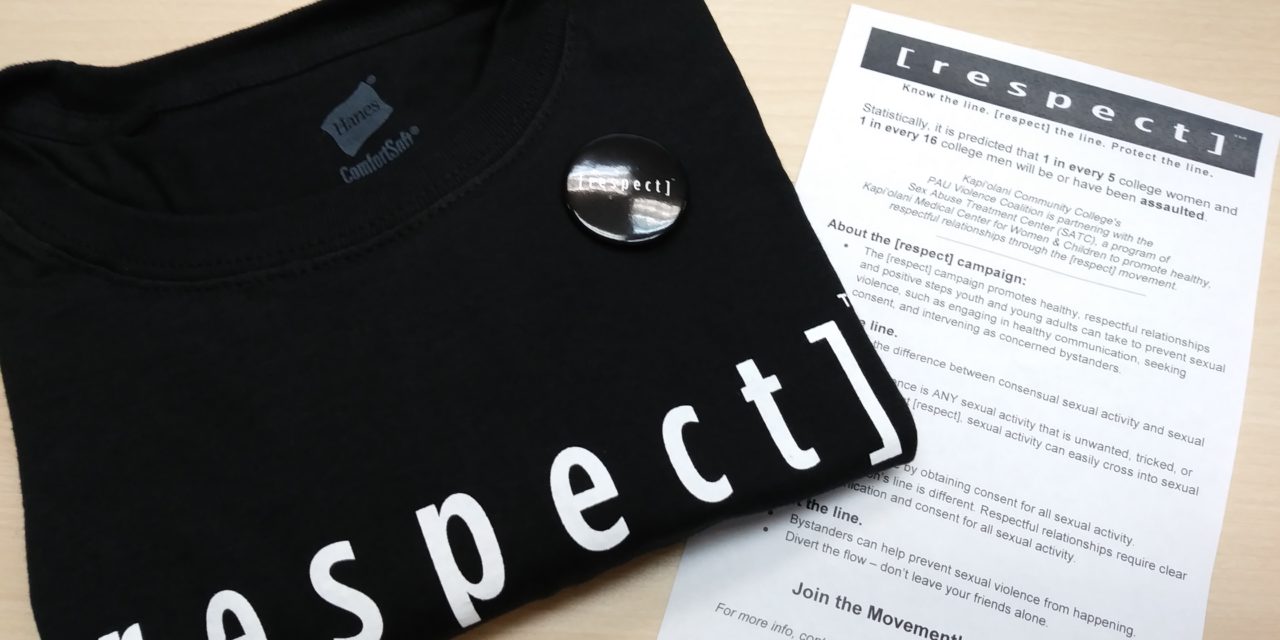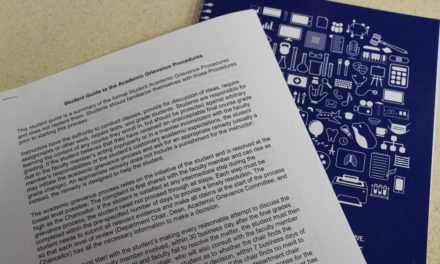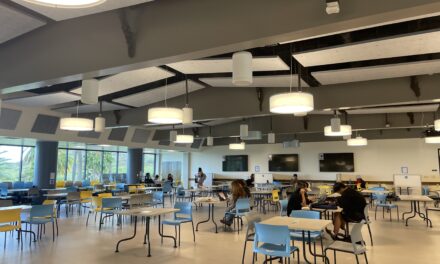By Lexus Yamashiro | Staff Writer
In February 2016 when a 24-year-old KCC international student headed to a bus stop near a McCully dormitory that he was staying in, he noticed his roommate also there and ended up catching the same #2 bus to campus. Describing his roommate as an anti-social and quiet person, the Economics major made no conversation with him during the bus trip, but was shocked when his roommate began to physically and verbally sexually harass him upon arriving to campus.
Getting off at the bus stop on Diamond Head Road in front of KCC, it was then that the international student’s roommate began to speak with him in Japanese, starting with small talk regarding their ages and the number of classes they are taking since they had only been living in the dormitory together for about two months. The conversation then escalated as the roommate grabbed the 24-year-old by the shoulder, asking if he was a “cherry boy,” a Japanese term for a virgin. After getting clarification for the unfamiliar term, he gave no response and continued to head to his class that was in the ʻŌlapa building.
Cutting through the walkway in the campus’s cactus garden, his roommate continued to follow him with his hands constantly grabbing for the 24-year-old’s shoulder while asking inappropriate questions. His roommate also questioned why he was not acknowledged earlier, to which the international student responded with “let me go” as he struggled to be released by his roommate’s grip. His roommate refused to do so, grabbing the 24-year-old’s hand as he continued to probe with sexual-related questions.
“He was harassing me, which was weird because usually for Japanese people in the Japanese culture only the older ones would bully the younger ones, but he was a few years younger than me,” said the 24-year-old, whose name is being withheld in consideration of his privacy. “I guess I looked kind of like an easy target.”
With no one around, the 24-year-old struggled until his roommate eventually let go, allowing him to continue his way to class.
Feeling scared after that incident, the international student felt that he should still attend class and report the incident afterward. He was eventually referred to Confidential Space in ʻIliahi 201, a place that was created in Spring 2016 as a requirement of Title IX that provides a space for students to share experiences that may involve violation of Title IX policies while also discussing options for possible further course of action.
“One in five women have been sexually assaulted or attempted sexual assault during her time in college, and even for men is one in 16,” said Brooke Conway, a Confidential Space student affairs counselor. “When students experience violence and sort of like the trauma and the experience of going through that … usually, it’s a very confusing time, it’s a very traumatic time, and I think what we recognize students need is a place they can go just to be supported.”
Confidential Space, under the supervision of Title IX Coordinator Dr. Brenda Ivelisse, is a space created for student victims to speak up regarding incidents of sexual misconduct and behavioral issues while receiving support and resources that help students in deciding if consequences for the alleged offender should follow. According to Conway, information that is shared by a student within the space is kept confidential except if the student plans on causing harm to others or his/herself.
Incidents involving domestic violence and sex assault are commonly brought up to Conway and fellow counselors Cathy Wehrman, also a Confidential Space student affairs counselor, and Sharoh Moore, the Confidential Space wellness counselor. The space also encourages students to share or report incidents involving rape, controlling behavior in a relationship, and mental health and wellness issues such as suicide, and emotional abuse.
Confidential Space believes that students who speak up will be able to gain a better understanding of the options that they have in how they would like to further address their incident, which the college hopes that the student’s decision will allow it to take appropriate action.
The 24-year-old was assisted by Wehrman, who expressed concern and understanding while explaining that the physical and verbal sexual misconduct that his roommate did was a Title IX violation. Like any other student who shares his/her story with the counselors in Confidential Space, Wehrman then offered the international student the choice of filing a report. The 24-year-old agreed with no hesitation, consenting that Wehrman could contact campus security to do so.
Choosing to file a report will often lead to an open investigation in which Brandon Chun, KCC’s deputy Title IX coordinator for students, will be made aware of the situation and conduct one. In the case of the international student, he was assigned a KCC independent investigator who gathered information to develop a report.
Due to the roommate’s inability to admit to everything that the 24-year-old claimed, Confidential Space created a safety plan for the international student that would ensure his safety including having an order issued to prevent him and his roommate from communicating, interacting and being in a class with one another. The 24-year-old shared that having the safety plan made him feel much more safe and comfortable on campus and that with new knowledge gained from his reporting process, he now knows who to report incidents to if one were ever to occur again.
Since the line of communication having been broken between him and his now former roommate, the 24-year-old expressed that he felt relieved with the help of Wehrman and Confidential Space, feeling connected with her and pleased that he could speak freely about his situation.
“I was really happy that if I needed any resources I knew who to talk to,” the 24-year-old said. “The whole school … can do much better on telling students that we have confidential counselors. If a student comes to me and talks to me and asks me who can I talk to confidentially, I would definitely tell them to talk to [the counselors in Confidential Space].”






